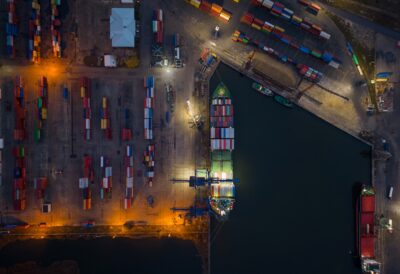Modern slavery is a pressing issue in the UK, with over 100,000 victims estimated to be trapped in exploitation, a staggering figure that highlights the scope of the problem. Victims are found in various sectors, including agriculture, hospitality, and construction, and are often controlled through violence, threats, and debt.
Understanding the Scope: What Modern Slavery?
The term “modern slavery” refers to the severe exploitation of individuals for personal or commercial gain. According to Anti-Slavery International, this can manifest in several ways:
- Human trafficking: Coercing people into transportation or employment.
- Child slavery: Exploiting children for others’ benefit.
- Forced labour: Making individuals work against their will.
- Debt bondage: The most common form, where people work indefinitely to repay debts under exploitative conditions.
Modern slavery is far more widespread than historical slavery, yet it remains hidden, often integrated into everyday supply chains.
In 2019, The Guardian reported that modern slavery is over three times more prevalent than slavery between the 15th and 19th centuries, but much harder to detect. This form of exploitation frequently operates in plain sight, disguised as legitimate work within global supply chains.
The directive officially came into force on 25th July 2024 and will be implemented gradually, with companies phased into compliance over the next five years.
How to Spot Signs of Modern Slavery at Your Workplace and in Your Supply Chain
Identifying modern slavery can be challenging, but there are key warning signs to watch for:
Restricted Movement
Workers who are controlled or monitored by others, or appear anxious and unwilling to engage.
Unusual Working Hours
Excessive overtime without proper compensation, or irregular shifts.
Poor Living Conditions
Workers living on-site or in overcrowded, substandard housing provided by the employer.
Lack of Documentation
Employees who don’t possess their own identification or bank details.
Dependancy on Others
Workers reliant on someone for transportation, meals, or communication.
The Modern Slavery Act and Corporate Responsibility
To address this, the Modern Slavery Act 2015 mandates that large organisations (annual turnover of £36 million or more) publish modern slavery statements, detailing the steps taken to ensure that exploitation is not present in their operations or supply chains. Despite these efforts, the National Referral Mechanism (NRM) identified 12,727 potential victims in 2021, a number that continues to rise.
High-Level Practical Steps for Organisations
- Supply Chain Audits: Organisations must conduct regular checks of their suppliers to identify potential risks.
- Training: Staff should be educated on recognising signs of forced labour or human trafficking.
- Recruitment Practices: Ensuring ethical recruitment procedures helps prevent exploitation.
- Whistleblowing Mechanisms: Safe reporting systems should be established for employees to flag concerns anonymously.
Case Study: 16 UK Victims
In a case of modern slavery in the UK, a gang exploited 16 victims over four years, forcing them to work at a McDonald’s in Cambridgeshire and a bakery supplying supermarkets like Tesco and Waitrose. Many red flags were missed, including wages paid into a single account and excessive work hours. The victims, mostly homeless and vulnerable, were lured from the Czech Republic with false promises, then controlled by fear and violence. Despite the Modern Slavery Act, companies failed to detect the exploitation, highlighting gaps in safeguarding practices.
Helpful Resources
Anti-Slavery International: https://www.antislavery.org/
Hope for Justice: https://hopeforjustice.org/
FreeSlaves: https://freetheslaves.net/
UK Government: https://www.gov.uk/government/collections/modern-slavery
Conclusion
Modern slavery remains prevalent in the UK, with thousands of victims caught in forced labour and human trafficking. The Modern Slavery Act provides a legal framework for businesses, but more robust and proactive actions are needed to eradicate exploitation. Companies must ensure that their supply chains and employment practices are free from slavery, as the McDonald’s case serves as a reminder that no organisation is immune from these risks.

Bianca Huttner
Bianca Huttner is a seasoned marketing leader with 15 years of experience driving growth for SaaS and Professional Services organisations. She has covered numerous territories including China, the USA, the Middle East, Australia, and Europe. Known for her relationship-oriented approach, Bianca excels in Corporate, Revenue, and Alliances Marketing. Her expertise spans product launches, marketing strategy, and Go-to-Market strategies. She holds a BA in Journalism and Marketing from the University of Johannesburg and has furthered her education at Northwestern Kellogg School of Management and Oxford University.
How United Outcomes helps
United Outcomes partners with organisations to support in assessments, audits, and investigations into modern slavery in the private sector. Our investigative and forensic specialists collaborate closely with your internal team and Supply Chain SaaS solution account managers, conducting thorough on-the-ground investigations of vendors and suppliers from Tier 2 through Tier 4. We carry out in-person, in-territory assessments, audits, and investigations, and, when necessary, forensic analyses to identify and address any negative impacts across operations, subsidiaries, and value chains.

